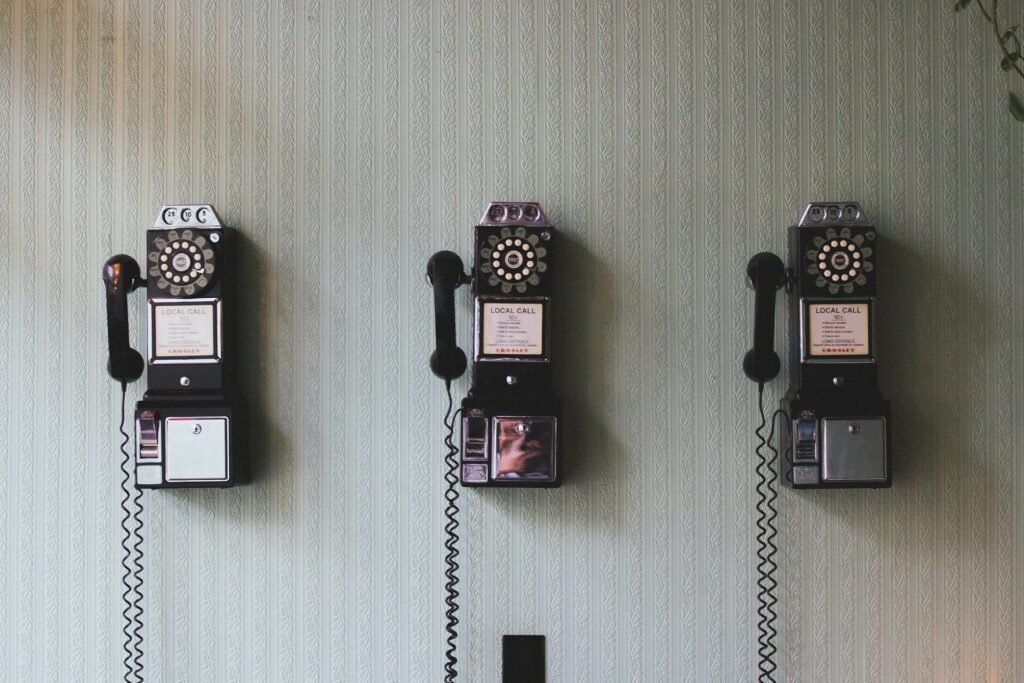
Contact Center Experts
Telephone etiquette: why is it important for a brand and business?
Takeways:
- What is Phone Etiquette: A set of behavioral rules ensuring professional and clear communication during phone calls.
- Importance for Businesses: Good phone etiquette builds trust, strengthens relationships, and enhances brand reputation.
- Key Elements: Proper greetings, clear communication, active listening, and polite farewells.
- Common Mistakes to Avoid: Interruptions, inappropriate tone, and poor attention to confidentiality.
- Impact on Success: Telephone etiquette can significantly influence customer loyalty and brand perception.
What is phone etiquette and how does it differ?
Phone etiquette is a set of rules and norms of behavior that govern communication during phone calls. It covers various aspects of interaction, from greetings to farewells, with an emphasis on maintaining a professional and polite tone. The main goal of telephone etiquette is to ensure effective, clear, and pleasant communication that contributes to a positive impression of the company or brand.
The difference between telephone etiquette and general etiquette lies in the specifics of the communication medium. Unlike face-to-face meetings, there is no eye contact and no non-verbal cues during phone conversations, which makes it difficult to convey emotions and intentions. Therefore, it is important to compensate for this with clear articulation, attentive listening, and appropriate responses to the interlocutor’s words. Telephone etiquette also includes features such as the proper use of pauses, the ability to answer questions quickly and efficiently, and maintaining a professional tone even in difficult situations. Following these rules helps to avoid misunderstandings and improve the quality of communication, which is key to successful business and brand reputation.
Why phone etiquette is important for companies and brands
Phone etiquette is important for companies and brands because it directly affects how customers perceive the organization. Effective and courteous phone communication helps establish and maintain positive customer relationships, increasing satisfaction and loyalty. First impressions are extremely important, and a phone call is often the first contact a customer has with a company.
For brands, phone etiquette serves as an important tool in building and maintaining a reputation. Customers who receive high-quality phone service tend to trust the brand more and recommend it to others. On the other hand, a poor phone experience can negatively impact a company’s reputation and lead to a loss of customers. Clear and courteous communication helps to avoid misunderstandings, resolve issues quickly, and provide accurate information, which builds brand trust.
Considering all these aspects, it can be argued that telephone etiquette is an important component of a successful business and building a strong brand. Compliance with telephone etiquette rules helps companies stand out in the market, provide high quality service, and build customer trust.
Elements of a telephone conversation that make up telephone etiquette
Telephone etiquette includes several key elements that help create a professional and positive impression during a call. These include proper greetings, introductions, a clear statement of the purpose of the call, active listening, and a polite end to the conversation.
- Greeting and Introduction
The beginning of a phone conversation is extremely important because it sets the tone for the rest of the interaction. The greeting should be clear and friendly to create a positive impression. Immediately after the greeting, you should introduce yourself by stating your name and company. This helps the other person to understand who they are talking to and set the mood for a constructive dialog. A clear and polite introduction demonstrates professionalism and willingness to communicate.
- Tone and intonation
The tone and intonation of your voice can significantly affect the perception of your message. It’s important to speak in a calm, confident, and friendly tone to inspire trust and positive emotions in the other person. Avoid monotony, as a lively tone of voice helps to keep attention. Remember that a smile, even on the phone, is audible and creates a warmer impression.
- Brevity and clarity
It is important to be concise and clear in your statements. Long and complicated sentences can be confusing and cause misunderstandings. Use simple and clear words to make your messages easy to understand. Try to avoid unnecessary information and focus on the essence of the issue so as not to distract the other person from the main topic of the conversation.
- Pay attention to the interlocutor
Active listening is a key element of telephone etiquette. It’s important to listen carefully without interrupting the other person and respond to questions or comments in a timely manner. This shows your interest in the conversation and respect for the other person. Use cues such as “I understand” or “that’s interesting” to confirm that you are listening and understand what is being said.
- Breaks and pauses
During a phone conversation, it’s important to be able to pause to give the other person time to think or respond. Don’t be afraid of silence, as it can be useful for thinking about information. It’s also important to let the other person know if you need to pause or temporarily interrupt the conversation to avoid awkward moments.
- Confidentiality.
Maintaining confidentiality is an important aspect of phone etiquette. When you’re on the phone, make sure you’re in a private place where no one can hear you. This is especially important when discussing personal or confidential information. Respect the privacy of the person you are talking to and do not disclose the information to third parties without their consent.
- Saying goodbye
Goodbye is an important step in a phone conversation because it leaves a lasting impression. End the conversation politely and clearly, thanking the other person for their time and attention. Wish them a good day or good luck with their future endeavors. It is also important to make sure that all issues have been resolved and that the other person has no further questions.
- Background noise
During a phone call, you should minimize background noise as much as possible. Find a quiet place to talk where you won’t be distracted by extraneous sounds. This will help avoid misunderstandings and ensure clear communication. If you cannot avoid noise, politely warn the other person and apologize for any inconvenience.
- Punctuality and respect for the other person’s time
Punctuality is a sign of professionalism and respect for the other person’s time. If you have a scheduled phone call, don’t be late and don’t keep the other person waiting. In the event of unforeseen circumstances, give advance notice of a possible delay. Try to stick to the scheduled time of the conversation so as not to take up too much time from the other party.
Telephone etiquette basics: what is and isn’t allowed
What is allowed
- Say hello
- Introduce yourself
- Clearly state the essence of the matter
- Listen to the interlocutor carefully
- Speak clearly and politely
- Thank for the conversation
- Say goodbye
- Respect the interlocutor’s time
- Use the appropriate tone of voice
- Create a quiet atmosphere for conversation
What is not allowed
- Be distracted during the conversation
- Speak too loudly or quietly
- Interrupt the interlocutor
- Use slang or foul language
- Have private conversations on a company phone
- Calling at inappropriate times
- Prolong the conversation unnecessarily
- Leave the phone unanswered for a long time
- Discuss personal issues with strangers
- Use a speakerphone in public places
Conclusion
Thus, telephone etiquette is an integral part of successful business communication. Adherence to these simple but important rules helps to strengthen the company’s reputation, build trusting relationships with customers and partners, and increase overall work efficiency. And remember that every phone conversation is an opportunity to take another step towards your brand’s success.
FAQs on Telephone Etiquette: Building Professional Customer Interactions
Proper telephone etiquette leaves a positive first impression, enhances customer trust, and builds a reputable brand image, which is vital for long-term success.
Key elements include a proper greeting, clear articulation, active listening, respect for time, and a polite farewell.
Poor etiquette can damage a company’s reputation, reduce customer satisfaction, and lead to a loss of loyalty and business opportunities.
Avoid interrupting the other person, using slang or inappropriate language, speaking too loudly, or being distracted during the call.
Provide structured training programs, role-play scenarios, and regular feedback to ensure employees master and apply proper phone etiquette.








